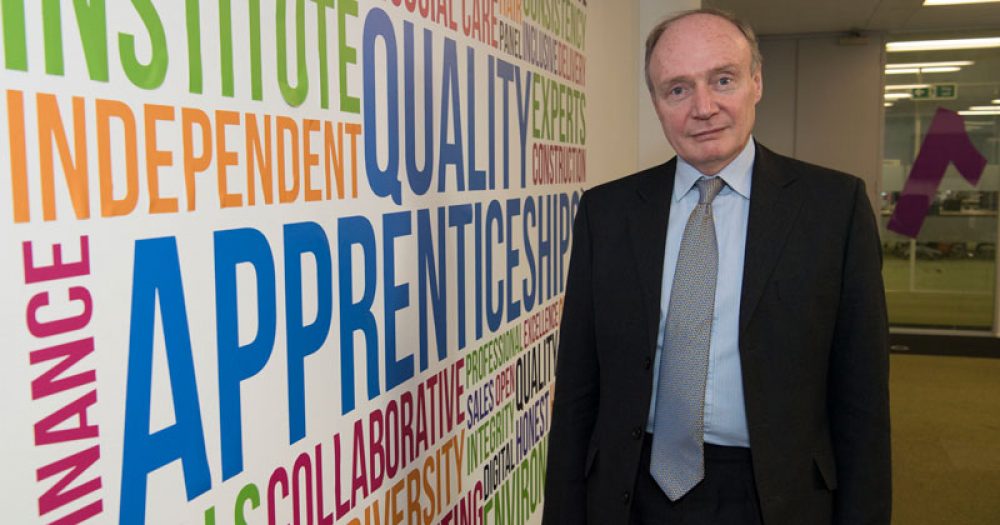The number of new apprenticeship standards approved for delivery declined dramatically in March and April, FE Week analysis has revealed.
The Institute for Apprenticeships only cleared four standards in April and 10 in March, down from 21 in February.
The agency’s chief executive Sir Gerry Berragan (pictured) only launched its Faster and Better initiative in December to “streamline the approvals process”.
A spokesperson claimed the figures are not surprising, as the IfA expected recent reforms to slow things down temporarily ahead of an anticipated upturn.
“The Faster and Better programme is made up of a number of different initiatives that are being introduced over time,” she said.
“The impact of such initiatives will take time to be fully felt. However, we anticipate they will help to speed up the development process and improve the overall customer experience significantly in the second half of this year.”
The impact of such initiatives will take time to be fully felt
She explained standards applications are “reviewed on a six-week cycle”, and a “range of factors can affect how many are approved for delivery in a particular month, such as fluctuations in the volume of submissions”.
“We piloted our new online template for proposals and standards in February and rolled it out for all submissions in March, and we published completely overhauled and simplified guidance in March.”
The number of standards approved in total so far this year was said to be “a marked improvement”, as “between July and December 2017, we approved 37 apprenticeship standards for delivery”.
Apprenticeship standards, which are developed by groups of employers, are gradually replacing the old frameworks. Each contains a list of the skills, knowledge and behaviours an apprentice will need to have learned by the end of their apprenticeship.
The IfA website showed 271 had been approved at the time FE Week went to press.
There are, however, 268 more in development, of which 29 have assessment plans that haven’t been approved for delivery.
Sir Gerry launched Faster and Better to address complaints from employers and providers that the approvals process was far too slow and bureaucratic.
The Confederation of British Industry’s head of education and skills John Cope described the March and April figures as “disappointing”, but backed efforts to speed things up.
“Businesses support the IfA’s strategy to speed up the standards process and improve support for trailblazer groups – something the CBI has long called for,” he said.
“We need more rapid progress, but it’s also crucial we get them right,” added Stephen Evans, the chief executive of the Learning and Work Institute. The IfA needs to set out when they expect numbers to pick up so we can see if it’s on track.”
Shadow skills minister Gordon Marsden pledged to monitor progress over the rest of 2018 “very carefully”.
“It is of course concerning that the approval of standards has slowed down. However I have personally spoken to the chief executive of the IfA who is confident the process will speed up in the second half of the year.
“This is a situation we will be monitoring very closely, not least because of the government’s track record in failing to deliver the resources and capacity the Institute has needed from day one.”








As a training provider we are being crusified by the drop in funding
Standards in the beauty industry are not out so we have no option but to continue to deliver frameworks in this interim period yet are being paid 50% less
We can not continue to deliver at this rate and unlike fe colleges can not get a financial bailout
Surely we should have been paid the same as previous if we had no choice but to stay on framework till our standards were approved for delivery
Comments please as I’m at a loss to the mentality of decision makers who are seriously damaging my business